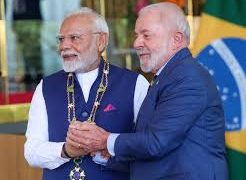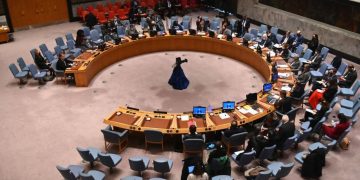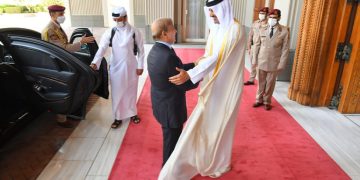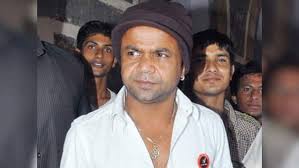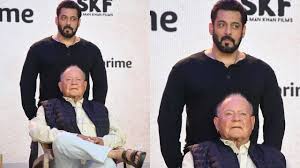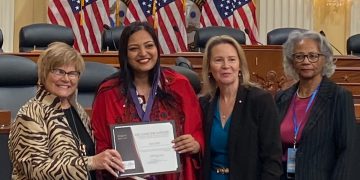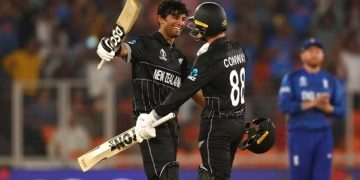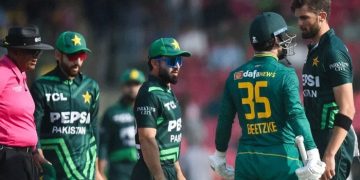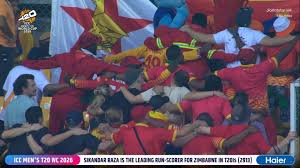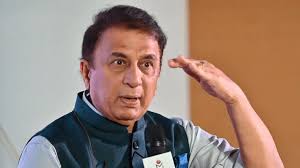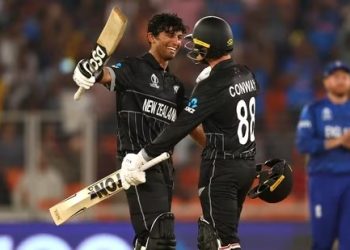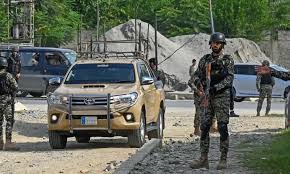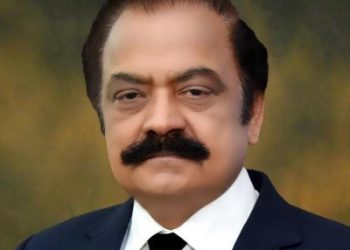The Supreme Court adjourned till tomorrow the hearing on multiple petitions against the trial of civilians in military courts, after the bench could not reach a decision on the formation of a full court on the matter.
Meanwhile, the attorney general for Pakistan presented a list of 102 people under the military custody to the Supreme Court.
The AGP presented the information during hearing of multiple petitions against the trial of civilians in military courts.
A six-member bench headed by Chief Justice of Pakistan Umar Ata Bandial and also comprising Justice Ijazul Ahsan, Justice Muneeb Akhtar, Justice Yahya Afridi, Justice Mazahar Naqvi and Justice Ayesha Malik is conducting the hearing.
Senior counsel and another petitioner Aitzaz Ahsan said he had full confidence on the bench, adding the court had included all the available judges on the bench.
“We stood against martial law; there is no conflict in two judges recusing from being part of the bench,” he remarked.
He stated that the 102 people should be kept in judicial custody instead of military’s.
The court then reserved its decision on whether to form a full court or not on the issue of military courts.
The CJP remarked that if they come up with a decision, it will be announced in 10-15 minutes.
Aitzaz Ahsan, Salman Akram Raja and Supreme Court Bar Association President Abid Zuberi expressed confidence in the current bench. However, the court objected to the timing of a plea for full court by Aitzaz Ahsan and Salman Akram Raja.
On the condition of sending the 102 suspects back to judicial lockup, petitioner Zaman Khan also supported the demand for a full court.
PTI Chairman Imran Khan’s counsel Shoaib Shaheen sought the current bench continue to the proceedings.
“There is an unannounced martial law in the country,” he remarked.
The AGP earlier told the court that the 102 people under the military’s custody were involved in attacks on military installations, alleging that seven of them were involved in the attack on the GHQ, three attacked the army institute, 27 attacked the Lahore Corps Commander House, four were involved in attacking the Multan garrison, and 10 Gujranwala garrison.
Moreover, he told the court, eight of the suspects were involved in the attack on the ISI office in Faisalabad, five for the Mianwali base, 14 in the Chakdara attack, seven Punjab Regiment Center in Mardan, while three were involved in the attack on the Abbottabad garrison and 10 on the Bannu Garrison.
The AGP further told the court that the suspects were arrested on identification through CCTV cameras and other evidence.
Earlier, the petitioner’s lawyer said his client did not want chief justice to be affixed with his name. at this, the CJP said that was why he was respected.
The CJP said Faisal Siddiqui had demanded a full court on the matter, Chief Justice
Petitioner former chief justice Jawad S Khawaja’s counsel told the court that his client wants to be treated as a common citizen.
CJP Bandial said Khawaja’s constitutional petition is non-political.
Justice Mazahar Naqvi says the law does not allow to pick and choose, asking that if an inquiry was held, why it was not on record.
“Those who were directly involved were handed over to military courts,” the AGP said.
He added that those who entered the Lahore Corps Commander’s House were sent to military courts.
If there is some content available on a forum, only then it will be known whether this claim is true or not, the CJP remarked.
Many people were involved in the attacks, but arrests were made only on the basis of evidence, the AGP remarked.
The reasons for sending the suspects to military courts are not mentioned in the magistrate’s order, Justice Ayesha Malik remarked.
It seems that apparently there are only photographs in the name of evidence against the suspects, Justice Naqvi said.
The CJP said the court does not even have that issue in front of it, as first it will have to look at the constitutional status.
He further said that counsel Faisal Siddiqui submitted an application on behalf of his client on the formation of a full court.
Siddiqui said their petition has nothing to do with the government’s objections to the bench. He added that even a military dictator could not oppose a full court decision.
Justice Mansoor and Justice Yahya also talked about forming a full court. The AGP has assured that no person will be sentenced to death or life imprisonment, he told the court.
He has also ensured that a trial will not begin without the court’s knowledge.
Faisal Siddiqui said a full court should be formed when there is a risk of conflict between institutions.
The CJP questioned how a full court could be formed if some judges have excused themselves from hearing the case.
The lawyer said the answer lies in the FB Ali case verdict.
The court then decided to first hear the petitions regarding constitution of a full court on the matter.
According to a Supreme Court decision, a judge who recuses himself from hearing a case cannot be asked hear it, the lawyer said.
He further said that in judicial history, the cases of military courts have been heard only by full courts.
This case is very significant because of involvement of fundamental rights, Faisal Siddiqui said.




